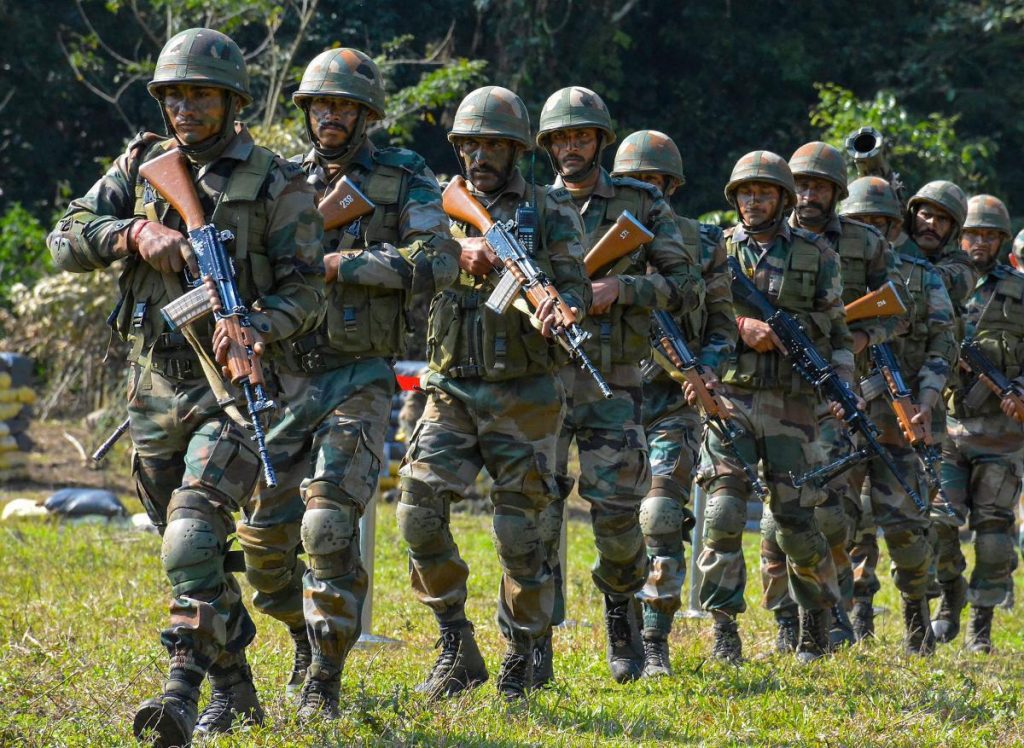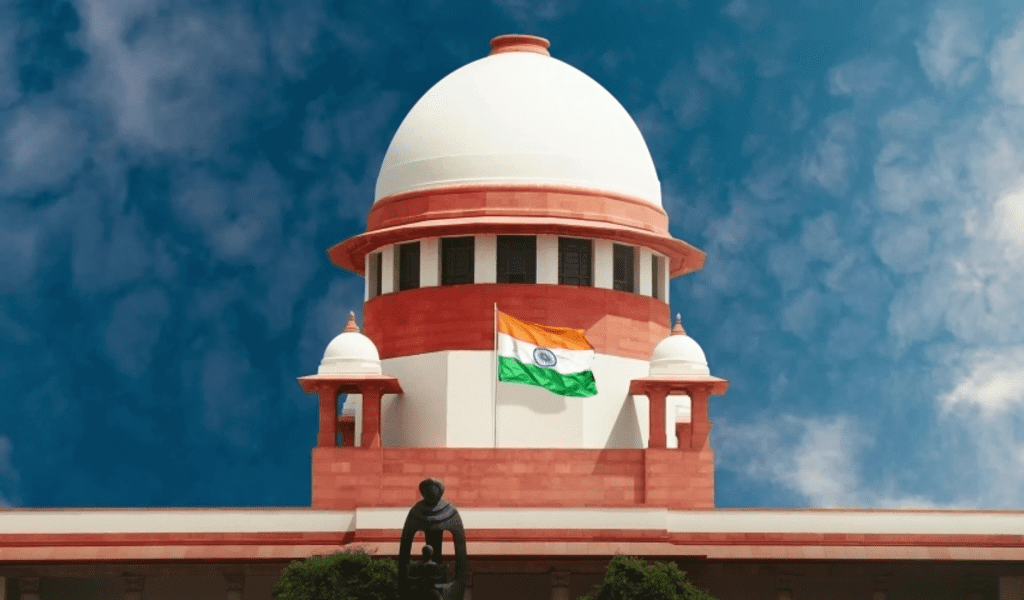
The Armed Forces Special Powers Act has been the topic of intense controversy since its inception. Citizens and human rights activists say it is harsh, but the government and armed forces believe it is necessary. The truth lies somewhere in the middle of these two extremes, as it always does. After the event in which security forces killed down 13 citizens, the Nagaland Cabinet recently recommended that the Armed Forces Special Powers Act (AFSPA) of 1958 be abolished in the state.
In the North-Eastern states, this has long been a desire. Both Nagaland Chief Minister Neiphiu Rio and Meghalaya Chief Minister Conrad Sangma have urged for the AFSPA to be repealed in the aftermath of the shooting. The executions, according to Nagaland authorities, have the potential to sow distrust in the Indian administration and undermine the ongoing peace talks between the Centre and Naga insurgent groups.
What is AFSPA?
The British passed the Act in its original version in response to the Quit India campaign in 1942. Prime Minister Jawaharlal Nehru opted to keep the Act after Independence, which had been introduced as an ordinance and subsequently notified as an Act in 1958.
AFSPA has been imposed on the Northeast states, Jammu & Kashmir, and Punjab during the militancy years. Punjab was the first state from where it was repealed, followed by Tripura and Meghalaya. It remains in force in Nagaland, Manipur, Assam, J&K, and parts of Arunachal Pradesh. After a state or portions of it are declared disturbed under Section 3, the Centre or the Governor of a State can impose exceptional powers for the armed forces on the state or parts of it. These are places that are “in such a disturbed or dangerous condition that the use of military forces in aid of the civil power is necessary,” according to the Act. AFSPA has been employed in places where there has been a lot of militancy.
The Act, which has been dubbed draconian, provides the military broad authority. It authorizes them to open fire, potentially killing anyone who is breaking the law or carrying weapons and ammunition. It grants them the authority to arrest people without warrants based on reasonable suspicion, as well as search people’s homes without a warrant. The Act also grants security personnel involved in such operation blanket immunity: no prosecution or legal action can be brought against them without the prior approval of the Centre.
What attempts have been made in the past to repeal AFSPA?

Irom Sharmila, a Manipur activist, initiated a 16-year hunger strike against AFSPA in the year 2000. In 2004, the UPA government established a five-member committee chaired by a former Supreme Court Justice. In 2005, the Justice Jeevan Reddy Commission issued a report declaring AFSPA to be a symbol of tyranny and urging that it be repealed. These recommendations were endorsed by the Second Administrative Reforms Commission, which was led by Veeerapa Moily.
Former Home Secretary G K Pillai has also advocated for the abolition of AFSPA, while former Home Minister P Chidambaram has stated that the Act should be reformed if not repealed. The UPA formed a cabinet sub-committee to examine the topic further. The NDA administration later disbanded the subcommittee and dismissed the Reddy Commission’s conclusions. however, objections from the Defense Ministry put a stop to any decision.
AFSPA’S Criticism
The act fails to protect and uphold human rights, as evidenced by the alleged custody rape and assassination of Thangjam Manorama in 2004 by Assam guns. The act reinforces a militarized security approach that has proven to be not only ineffective but also harmful in dealing with security threats.
The military’s absolute ability to shoot on sight is based on mere suspicion and for an offense as minor as disobeying an order. The ability to shoot on sight infringes on the fundamental right to life by making the soldier on the ground the judge of the value of various lives and making persons mere objects of an officer’s discretion.
The military’s ability to make arbitrary arrests and detentions violates Article 22, which establishes safeguards for preventative and punitive detentions. The Supreme Court has ruled unequivocally that the person apprehended must be brought before the court within 24 hours of the FIR being filed. These conditions, however, have been blatantly disregarded. The most serious criticism of AFSPA is the immunity granted to the armed personnel. No prosecution, litigation, or other legal action may be brought without the prior approval of the central government. This immunity, which protects guards while also allowing the armed forces to make sometimes rash decisions, is certainly dubious.
The right to life and liberty enshrined in Article 21 of the Constitution of India as well as certain rights enshrined in Article 20 cannot be suspended even during a state of emergency. However, the absolute power provided to the military forces nullifies the inherent rights guaranteed by the fundamental rights, and all power is concentrated in the hands of the officers.
Interventions by the CBI in encounter killings in the past have failed miserably. Consider the Pathribal assassinations, five days later, Indian Army personnel claimed to have killed five foreign insurgents who were responsible for the Pathribal atrocity. Following an investigation, it was discovered that those killed were local males who had no involvement in the Pathribal killings. The case that followed wove its way through the courts and the CBI. Five troops were charged with cold-blooded murder by the CBI, according to the charge sheet.
Judiciary View

The validity of AFSPA was challenged before the Supreme Court in Naga People’s Movement of Human Rights vs. Union of India, and the five-judge bench concluded that the act cannot be considered as violative of the Constitution and that the powers conferred under Sections 4 and 5 of the Act are not arbitrary and unreasonable, and thus are not in violation of the Constitution’s provisions.
The further guideline states that –
- The army soldiers are also supposed to carefully execute Section 4’s minimal force requirements when accused of breaking restrictive orders.
- Within 24 hours after being arrested and brought into custody under section 4, the person must be handed over to the nearest police station.
- The state is required to examine the act every six months.
Indrajit Barua v The State Of Assam and Anr., a well-known case in which the court established and ruled that it is the state’s responsibility to ensure the protection of its inhabitants and their rights guaranteed under Article 21, which is also given to persons when the AFSPA is enforced. People living in ‘disturbed areas’ are denied any type of protection for their lives and liberties, including protection under the Criminal Procedure Code and even the right to approach the courts and seek redress, which is a violation of Article 14 of the Constitution, which is guaranteed to all citizens. Looking at the situation in the northeastern part of India, it is possible to deduce that the people who live there will eventually be ruled by the army.
In other cases, such as the Shopian Case, two women went missing while returning home from the orchards, and their bodies were discovered the next day, with allegations that they were raped and killed by armed personnel stationed nearby. The injuries on the girls’ private parts that were intended to be noted in the post-mortem reports were eventually cleaned off, so the armed forces could not be blamed, questioned, or dragged into the subject, even though no FIR was filed in this case when such a horrible incidence occurred.
Then there was the case of Luithukla v. Rishang Keishing, in which a writ of habeas corpus was filed and the court ordered the army to observe the Code of Criminal Procedure rules, but there was no enforcement and no one listened to the Guwahati High Court’s words. In reply, the army officials accused the judges of the High Court of undermining the armed forces stationed in the country’s north-eastern region.
In Extra Judl.Exec. Victim Families … vs Union of India & Anr on 13 July 2016 the Supreme Court’s verdict against the alleged encounter killings carried out under the AFSPA came after the victim’s family filed a petition alleging 1528 encounter killings in Manipur since 1979. The bench said It does not matter whether the victim was a common person or a militant or a terrorist, nor does it matter whether the aggressor was a common person or the state. The law is the same for both and is equally applicable to both… This is the requirement of a democracy and the requirement of preservation of the rule of law and the preservation of individual liberties.
The Supreme Court judgment said –
At the request of the NHRC, every death in the disturbed areas, whether of a civilian or an insurgent, should be properly investigated by the CID. Not every armed individual who disobeys a prohibitory order in a troubled area is a foe. Despite the fact that he is regarded as a foe, a full investigation must be carried out, as every Indian citizen is entitled to all fundamental rights, including Article 21 of the Constitution of India.
Even if the victim is determined to be an adversary, an investigation should be conducted to determine whether excessive or retaliatory force was employed. For army troops who commit a crime, there is no such thing as absolute immunity.
In 2017 The Supreme Court’s recent decision on alleged unlawful encounter killings in Manipur is a significant institutional milestone —
It acknowledges the occurrence of state-sanctioned violence in conflict-torn places. It also states that victims of such violence do not have access to justice, which is a fundamental human right recognized by India’s Constitution. The Supreme Court has overturned the Centre’s and Army’s objections and directed the CBI to form a special inquiry team to look into the killings in encounters. The case has gone a long way toward exposing the security forces’ institutional blindness to violence in crisis zones.
In 2014, the National Human Rights Commission and the Supreme Court both issued recommendations for the state to follow in the event of encounter deaths. It states that an FIR should be filed first, that an impartial agency should undertake the investigation rather than officials from the same police station, and that a magisterial inquiry should be held.
In most states, however, these restrictions have remained on paper. The Supreme Court of Manipur noted that no FIR had been lodged against any uniformed personnel or members of the state police forces. Instead, the victims have been charged with supposed law and order offenses in a tumultuous region.
Human Rights and the AFSPA

Because of the incidents of violence that have occurred in the past and continue to occur now, it is past time for the government to take AFSPA seriously and repeal it. Operation Bluebird, which was also reported by some of the prominent international organizations, occurred in the month of January in 1987 at a place called Oinam in the state of Manipur, where nearly 30 villages occupied by the Nagas were covered for committing violence that included torture, mass killings, as well as heinous acts of sexual harassment, theft, and other criminal activities that were cowed by the Nagas.
It’s also worth noting that no one, even the authorities, was allowed to enter the places where such activities were taking place. AFSPA is harsh since it has made people’s lives as though they have been under curfew for their entire lives. This act is arbitrary in character and does not follow the idea of constitutional morality. In any court of law, the government’s decisions in situations involving disturbed areas are unchallengeable. As a result, many incidents, particularly those involving these regions where such activities are taking place, go unreported, and the victims go unpunished.
The crucial thing to remember is that simply modifying the act will not address the problem because there are several holes that can’t be filled with amendments. It is critical for the government to understand that people’s rights must be preserved and that AFSPA must be repealed in order to do so. It not only violates citizens’ fundamental rights, but it also goes against the Universal Declaration of Human Rights, which India has ratified. What happened in Kashmir has also brought attention to the state’s predicament from July 2016 to April 2018. It also raises major worries regarding Pakistan’s involvement in Kashmir’s northern areas.
Conclusion
To prevent the danger of it being abused, AFSPA should be changed to make it more comprehensive, with detailed guidelines governing the method in which alleged human rights abuses are investigated. Human rights breaches should be seen as the greatest danger to the Army’s reputation and 62-year track record of battling insurgencies. To deal with the situation, it must restore the legitimacy of its legal system. All court-martial held in connection with human rights abuses should be made public by the Army. It must conduct thorough investigations into all alleged human rights breaches in Manipur and abroad. Through negotiation with rebel organizations, the government should endeavor to end the long-running insurgency in the North-eastern states. The government should take immediate action to establish new avenues of growth through industrialization and infrastructure development in the Northeast region, which is thought to be a significant cause of the insurgency.